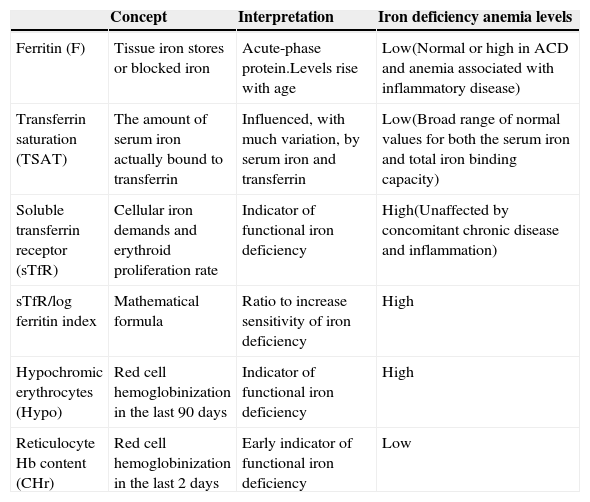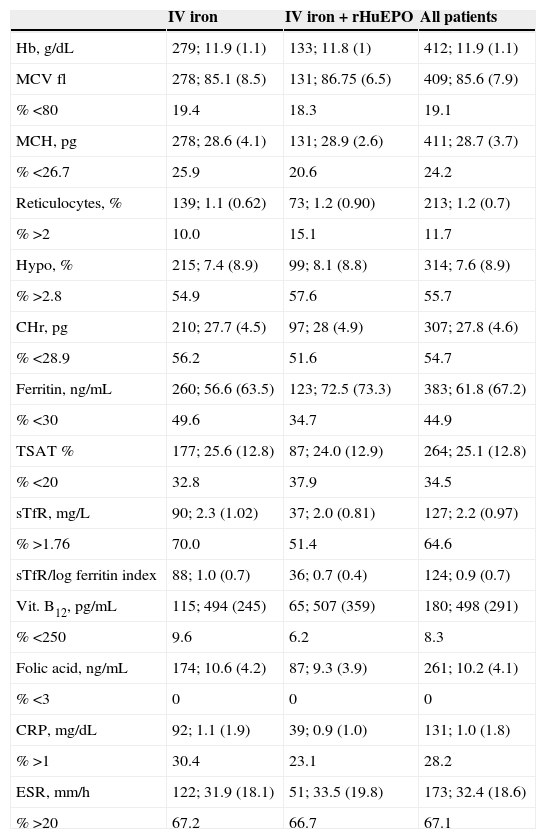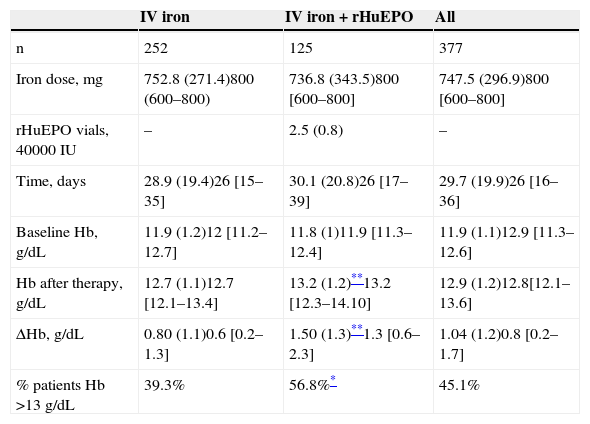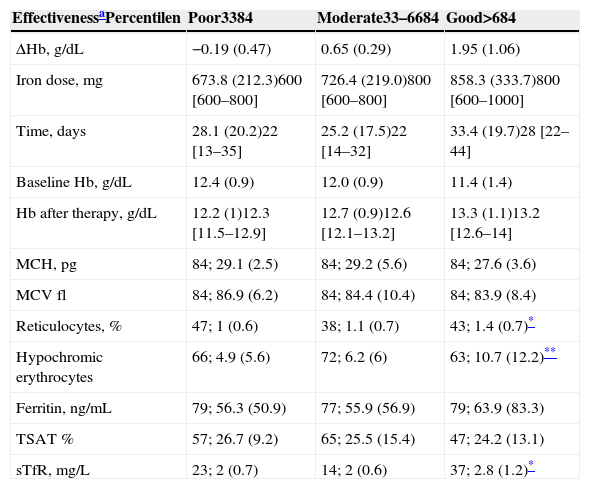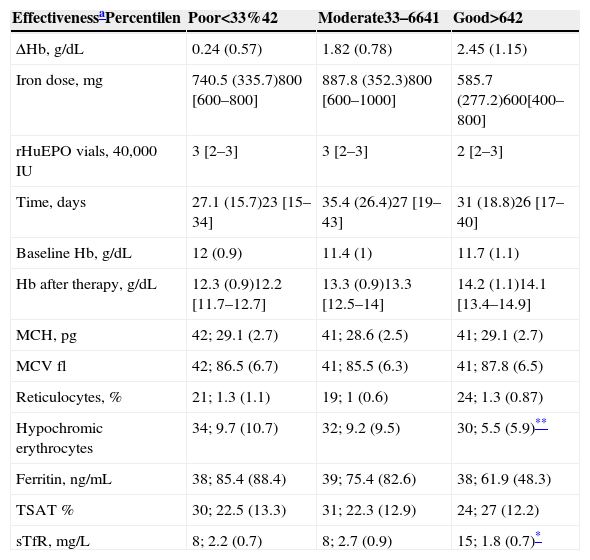To evaluate the effectiveness of intravenous iron treatment, with or without associated erythropoietin (rHuEPO), measured as hemoglobin (Hb) increase. The relationships between the Hb increase and parameters used to evaluate anemia were analyzed.
Materials and methodsRetrospective observational study carried out in two third-level hospitals between January 2005 and December 2009. The study included patients with iron deficiency anemia scheduled for elective orthopaedic surgery and treated with intravenous iron sucrose alone or associated with rHuEPO. Treatment efficacy was analyzed based on the Hb increase from baseline to just before surgery.
ResultsA total of 412 patients who received a median of 800mg of iron sucrose were included; 125 of them (30.4%) additionally received 2.4 vials of rHuEPO. The Hb increase was 0.8 (1.1)g/dL in patients treated with intravenous iron and 1.5 (1.3)g/dL in those additionally given rHuEPO (P<.01). The percentage of hypochromic red blood cells (r=0.52) and soluble transferrin receptor (r=0.59) value were significantly correlated to the Hb increase in patients receiving iron.
ConclusionsIn patients with iron deficiency anemia, the effectiveness of iron sucrose treatment to optimize Hb before surgery was moderate; adjuvant administration of erythropoietin improved the results. Determination of functional iron status parameters may improve the treatment effectiveness.
Evaluar la efectividad del tratamiento con hierro intravenoso, solo o asociado a eritropoyetina (rHuEPO), mediante el incremento de hemoglobina (Hb). Como objetivo secundario se analizó la relación del incremento de Hb con los parámetros utilizados para evaluar la anemia.
Material y métodoEstudio observacional retrospectivo realizado en 2 centros entre enero de 2005 y diciembre de 2009. Se incluyeron pacientes sometidos a cirugía ortopédica electiva con déficit de hierro y que fueron tratados con hierro sacarosa intravenosos solo o asociado a rHuEPO. Se analizó la efectividad del tratamiento mediante la diferencia entre la Hb basal y la Hb previa a la cirugía y se valoró la relación entre los parámetros hematimétricos y del metabolismo del hierro con la efectividad del tratamiento.
ResultadosSe incluyeron 412 pacientes que recibieron una mediana de 800mg de hierro sacarosa. A 125 pacientes (30,4%) se les asoció 2,4 viales de rHuEPO. El incremento de Hb fue de 0,8 (1,1)g/dL en los pacientes tratados con hierro intravenoso y de 1,5 (1,3)g/dL en los que se asoció rHuEPO (p<0,01). El incremento de Hb en los pacientes tratados con hierro se correlacionó con el porcentaje de hematíes hipocromos (r=0,52) y el valor del receptor soluble de la transferrina (r=0,59).
ConclusionesLa efectividad del tratamiento con hierro sacarosa en pacientes con déficit de hierro para la optimización de la Hb preoperatoria fue moderada, siendo mayor con la administración adyuvante de eritropoyetina. La determinación de los parámetros funcionales del estado del hierro nos podría guiar para mejorar la efectividad del tratamiento.






